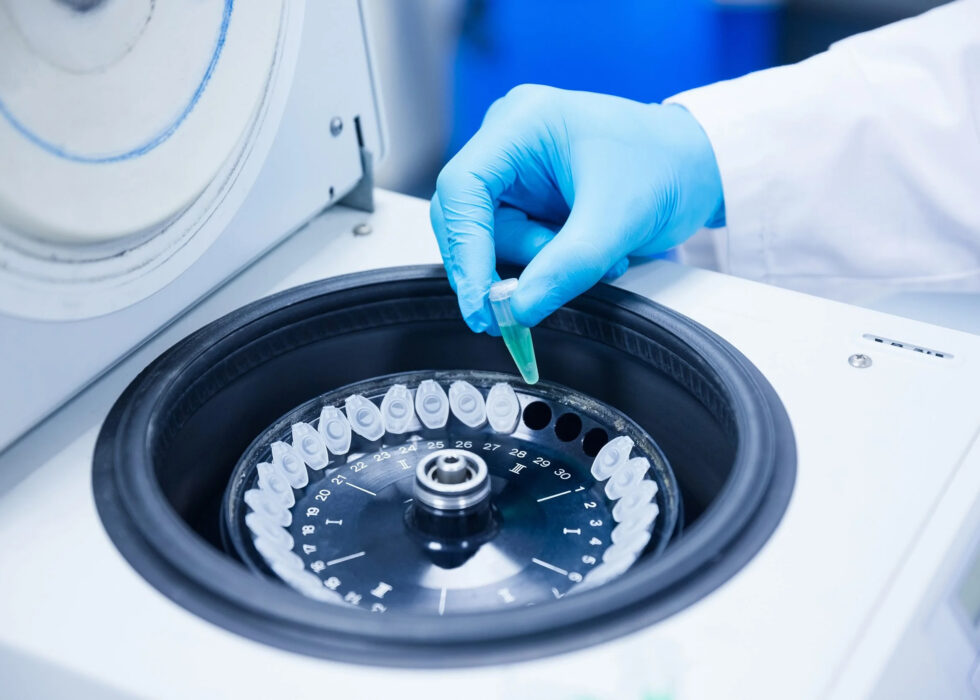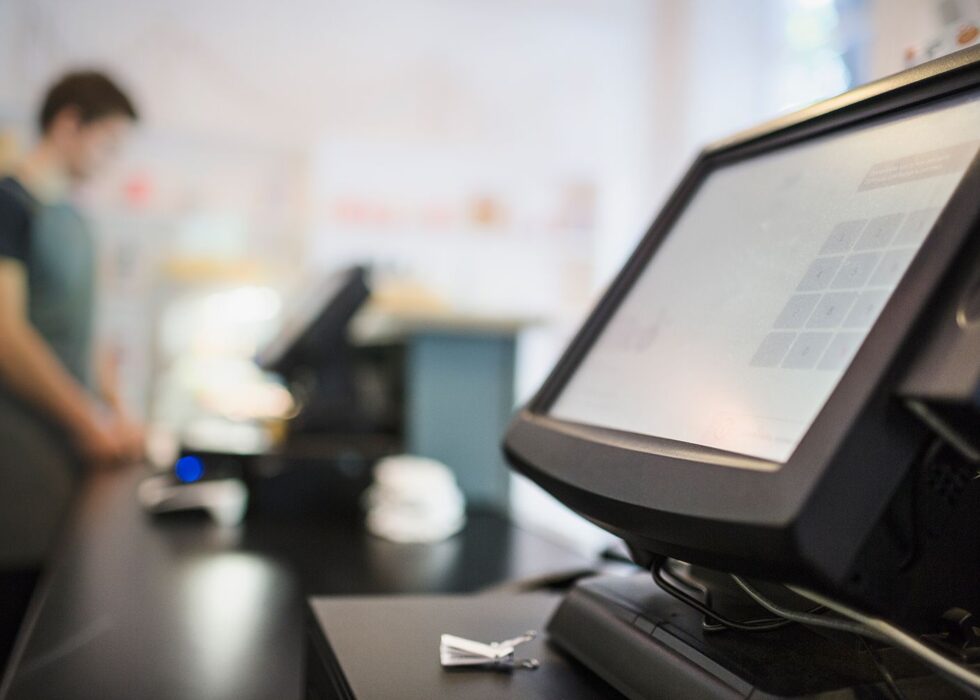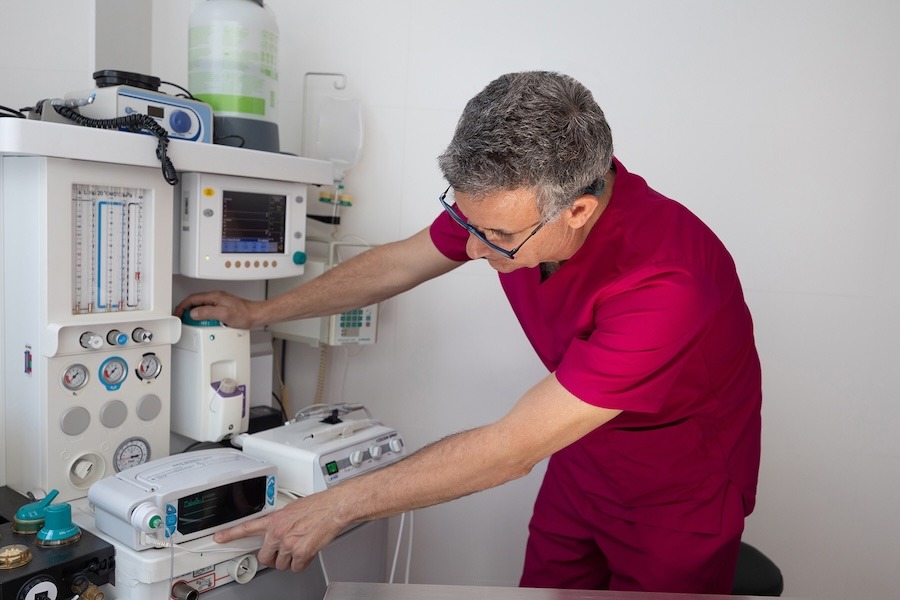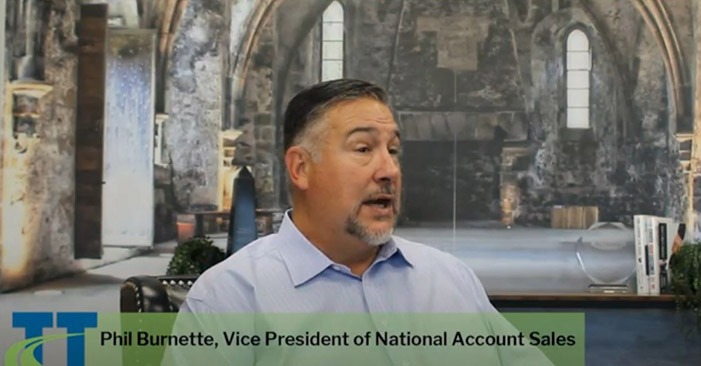Streamlining Equipment Deployments with Seamless Logistics
How TechTrans Minimizes Downtime Through Integrated Delivery and Installation Services
No matter if it’s a diagnostic-critical machine for a healthcare facility, an install of a new IT data bank, or a roll-out of new kiosks, self-check-out machines or cash recyclers for retail locations nationwide, no manufacturer wants a gap between the delivery of the equipment and when it can be installed. It’s a frustrating, costly interruption that disrupts schedules, delays productivity, and stretches customer patience.
Traditional logistics models often involve multiple handoffs between transportation carriers, installation teams, and customer coordinators — increasing the risk of delays, miscommunication, and extended downtime.
TechTrans is transforming this process.
As a turnkey logistics provider specializing in White Glove transportation services, TechTrans offers a fully integrated solution that bridges the gap between standard delivery and technical installation. Through our unique blend of transportation expertise and product-specific technical capabilities, we help shippers streamline equipment deployments from pickup to power-up.
A Single, Seamless Solution from Pickup to Installation
TechTrans distinguishes itself by offering both routine transportation and technical delivery services under one roof. Unlike conventional carriers that stop at the point of delivery, our trained and certified drivers go beyond the drop-off. We routinely provide:
- Inside delivery
- Unpacking and debris removal
- Equipment placement
- Assembly and basic power-up functions
This combination simplifies the process for shippers and their customers, eliminating the need to schedule separate installation teams and reducing the burden on service engineers, sales representatives, or customer personnel who might otherwise have to coordinate post-delivery activities.
The result? A single scheduling appointment that combines delivery and installation, ensuring faster, more predictable equipment deployment with minimal downtime.
Nationwide Flexibility and Control
With a robust national network of local delivery teams and strategically located service centers, TechTrans provides shippers with exceptional flexibility and control. Our ability to hold shipments in transit at one of our many facilities gives customers the breathing room they need when schedules shift — whether due to last-minute customer changes, site readiness delays, or unforeseen construction issues.
Rather than costly failed delivery attempts, reroutes, or returns, TechTrans provides real-time options that keep your deployment on track, reducing frustration for both you and your customers.
Specialized Training for Every Product
TechTrans also invests heavily in product-specific driver training, ensuring that each delivery professional is fully versed in the unique requirements of your equipment. Our scalable training program can quickly adapt to product updates, scope changes, and shifting delivery specifications — without requiring shippers to absorb the high costs typically associated with widespread technical training.
This level of precision and preparedness enables our teams to handle each piece of equipment with the care and expertise it demands, giving shippers confidence that their products will be installed correctly, on time, and ready for immediate use.
Why TechTrans?
TechTrans delivers more than just equipment — we deliver peace of mind. By combining transportation, installation, and technical expertise into one seamless process, we help businesses:
- Minimize downtime
- Reduce operational complexity
- Improve customer satisfaction
- Gain scheduling flexibility across the country
If you’re looking to streamline your equipment deployments and provide your customers with a truly seamless logistics experience, TechTrans is your trusted partner.
Contact us today to learn how we can simplify your next deployment.
Why 3PL Healthcare Logistics Providers Are Critical to Supply Chains
In healthcare, 3PL Healthcare Logistics is not just about transportation—it’s about precision, safety, and reliability. When the cargo includes sensitive medical and laboratory equipment, delays or mishandling can result in more than financial losses; it can interrupt essential patient care or delay critical diagnostics. Third-party logistics (3PL) providers are a vital link in the healthcare supply chain, offering the expertise, infrastructure, and compliance focus required to manage high-value, highly sensitive medical and life sciences equipment.
Transporting Sensitive Equipment Requires Specialized Capabilities
Medical and life sciences facilities rely heavily on a wide range of sophisticated equipment—from vaccine refrigerators and centrifuges to C-scan machines, incubators, and portable diagnostic systems. These assets are often bulky, fragile, and technologically complex. They require custom crating, shock-resistant packaging, and sometimes even white-glove delivery and installation.
A qualified 3PL partner brings the tools and procedures to manage these requirements, ensuring that equipment arrives not only on time but fully operational. This may include liftgate-equipped vehicles, climate-controlled transport, and personnel trained to handle delicate, high-value instruments.
Compliance and Coordination in Every Move
Sensitive medical equipment doesn’t just need to arrive—it needs to arrive in a state that meets operational and regulatory expectations. 3PL providers manage complex delivery protocols that account for environmental controls, documentation, and coordination with facility staff.
For example, delivering a new diagnostic imaging machine to a hospital involves more than transport. It often requires coordinating with construction crews, securing clearances, navigating elevator and power access, and sometimes providing on-site assembly. In life sciences labs, even relatively small equipment—like refrigerated centrifuges or PCR machines—must be moved without disrupting ongoing research or compromising calibration.
3PLs that specialize in healthcare logistics maintain compliance with safety standards, maintain audit trails, and minimize downtime by aligning deliveries with customer workflows and infrastructure constraints.
Flexibility for Changing Needs
Healthcare organizations are constantly evolving—whether expanding lab capacity, replacing outdated equipment, or responding to emerging health trends. 3PL providers offer the flexibility to scale distribution and installation services accordingly. This agility is essential not only for major hospital systems but also for decentralized clinical trial sites, diagnostic labs, and outpatient centers that increasingly demand advanced equipment and fast, reliable service.
For instance, as point-of-care diagnostics expand, clinics across the country require equipment like compact analyzers or refrigerated storage units to be delivered and set up in days, not weeks. A 3PL experienced in healthcare can pivot quickly to support these demands without compromising safety or compliance.
Inventory Management for Capital Equipment
Unlike consumables, medical equipment typically represents a significant capital investment. Mismanagement of inventory—whether in storage, in transit, or during returns—can lead to avoidable costs. 3PL partners help healthcare organizations track assets throughout the lifecycle, offering secure warehousing, scheduled maintenance logistics, and reverse logistics for decommissioned or returned equipment.
This visibility is especially critical in life sciences, where clinical equipment may rotate across trial sites, or where specific calibration and handling protocols are required for storage and redeployment.
Supporting Patient Care Through Operational Excellence
Ultimately, when the right equipment is delivered to the right place in the right condition, healthcare providers can offer faster diagnoses, better monitoring, and more efficient care. By entrusting complex equipment logistics to 3PL experts, hospitals and labs can reduce the burden on internal teams and maintain focus on their clinical mission.
In medical and life sciences logistics, the delivery of a C-scan machine or an incubator is not a simple shipment—it’s an operational event. A specialized 3PL understands that, and brings the logistical precision needed to make sure that vital technologies are always in the right hands, at the right time.





